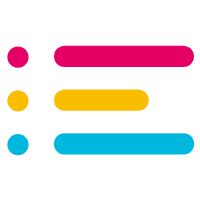
CryptoSlate recently had the opportunity to chat with James Qu, the CTO of PlatON, a blockchain-based infrastructure for privacy-preserving computation and distributed economies.
CryptoSlate In the interview, discuss:
- The problems that the PlatON network is solving
- PlatON’s blockchain infrastructure and technology
- Types of businesses PlatON is building for
- Advanced technical features of the network
- How PlatON deals with government regulations
- Current and future use cases
- and much more…
CryptoSlate (CS): Tell us about the PlatON platform and what problems it’s solving?
James Qu (JQ): PlatON is an open-sourced, community-based, blockchain ecosystem, which aims at serving as the infrastructure for privacy-preserving computation networks and distributed economies.
In another word, PlatON plans to redefine the business model by protecting data privacy, it provides an infrastructure to solve data-related critical business problems. Beyond that, we view the PlatON network as data sovereignty protection.
After years of research and development, we’ve already been a top player in the global privacy-preserving computation field. We will provide an infrastructure supporting massive data asset transactions leveraging our years of experience in finance, high-tech, AI, etc.
Regarding privacy-preserving computation, we focus on providing solutions for the industries that have strong demands on data sharing and collaboration computing. Data is the next-generation factor of production or resources, and privacy-preserving computation will be the core of the infrastructure of the digital era in the very near future.
PlatON as a blockchain was born to be a financial infrastructure dealing with transactions, aimed at facilitating the circulation of data assets. It is a super “clearing house” for cross-ID, cross-account, cross-institute, and cross-industry, and a revolutionary governance model.
PlatON is devoting itself to the core technologies and economic model of blockchain, and diving into the core applications for the super infrastructure based on privacy AI.
CS: Is PlatON building on an existing blockchain network or developing a new one?
JQ: We forked from Ethereum at the very beginning and then upgraded storage, replaced the core consensus algorithm from PoW to a secure Concurrent BFT called Giscard based on PoS, designed a new economic incentive schema, introduced new signature algorithms like BLS, etc.
From a purely technical point of view, we have removed 625,000 lines of code, and added 742,000 lines of core source code. Moving forward, we are going to add more privacy computation frameworks related to middleware and components.
You may view it as a new blockchain network with Ethereum DNA.
CS: Is the PlatON network targeting businesses? If so, what kinds?
JQ: Yes, the PlatON network is targeting real business. In short, it is the data business. Surrounded by smart IoT devices, state of art AI models, and cloud of super hardware, massive big data-based learning, decision making, procedure optimization had greatly changed our daily life as well as business, brought huge value to a limited number of platforms, on top of sacrificing sensitive data of others.
Only when source data rights are protected, computation algorithms like AI are protected, and computing power is recognized, a new digital paradigm is sustainable.
Data is, at the core, is the new-generation factor of production, or resource, which has huge potential value. The data market business is PlatON aiming to build.
CS: What advanced technical features of the PlatON platform are unique and have not been seen before?
JQ: There are many and will be more. From a blockchain technology point of view, you may find out our Giskard consensus algorithm passed scrutiny formal verification done by Runtime Verification. And overall performance, according to the test reports, is satisfying. There is no need to construct layer-2 solutions for performance enhancements.
If you visit our GitHub or read our Medium articles, you will have first-hand impressions of our code and achievements.
From a privacy and AI point of view, we have launched the world’s first privacy AI framework, Rosetta, that helps developers get involved in TensorFlow and privacy-preserving computation. This helps build the next-generation data bank service. We are working on collaborations with commercial banks and insurance institutes.
The most important technical feature, from a privacy-preserving point of view, relies on our rich experienced cryptography team. We have contributed MPC algorithms to the Ethereum ecosystem on a cryptography front.
For example, PlatON got FY19-0157 grants from Ethereum in 2019 and will be used for Secret Sharing Validators. This year, we received new Grants FY21-0379 from Ethereum on MPC. By the middle of this year, will release a privacy computation network together with a group of privacy-preserving computation protocols.
CS: How does PlatON deal with government regulations?
JQ: We have embraced regulations from the very beginning and have relied on our Singapore lawyers’ advice regularly. We are building a regulation friendly plug and play framework when needed.
Technically PlatON is an open-sourced community and a public chain ecosystem.
CS: What are some of the PlatON current or future use cases?
JQ: PlatON is a fully functioning blockchain ecosystem — it supports those most common active DApps, for example, DeFi and NFT. The sandbox Alaya will focus on this and be the infrastructure. On top of that, privacy-preserving technology will empower those use cases with the rollout of privacy protocols. PlatON also supports more complicated institutional use cases, especially data-sensitive use cases.
For example, we have had a few traditional financial cases, transportation, and biotechnology cases, and delivered an MPC-based wallet management platform KeyShard. We also rolled out a bank-sensitive data collaboration platform.
In the future, as a distributed economy infrastructure and private data network, a data market will emerge.
Individuals, institutions, even machines will be able to join this data market as data providers, computation model providers, and computation power providers. All parties will speak the same protocol language, negotiate with related parties, agree on how to verify the results, how to settle, then collaborate under agreed benefit distributing consensus, finally automated verified and settled on-chain.
CS: How does PlatON handle security and scalability?
JQ: Performance, security, and stability are the top priorities for PlatON. Since the release of our new Baleyworld test, we’ve gone through all kinds of function tests, exception tests, security tests, governance drills, and stress tests under the testing environment that simulated and reproduced all risks and issues that would occur on the main net.
According to the report of a new round of security audit finished by SlowMist, we’ve ensured the absolute security of the PlatON network with high-quality code. The very core part consensus algorithms, a BFT + PoS + VRF with parallel block producing mechanism, called Giskard (the robot from Asimov’s novel), passed scrutiny formal verification done by Runtime Verification. The VRF introduced randomness of validators, improved security from malicious attacks.
In addition, economically, our special design of incentive model avoids the headache of centralized mining power, which may lead to the network being controlled by a specific mining pool. Thanks to the state-of-art Giskard (formally verified), we are satisfied with security and scalability.
CS: Tell us about the PlatON team. How many team members and what are their previous experience in blockchain?
JQ: We have a team with a solid background in both academics and technology.
Our team leaders have deep and rich experience on distributed platform core architects because only that generation had the chance to build distributed frameworks from scratch.
We began focusing on blockchain technology in 2016, rolled out a couple of versions, from the GitHub source code repository, the rough number 600,000+ lines removed and 700,000+ lines added which emphasizes the depth of our code improvements.
Blockchain is a financial infrastructure dealing with transactions, and our team’s rich traditional finance experience from settlement clearing, payment, and trading platforms helped us foresee the possibility of creative use cases.
Since PlatON is an open-sourced and community-driven ecosystem, I may not be able to tell you exactly how many developers are contributing. Active core developers are around 100+ including product design, fundamental tools, and testing, etc.
CS: What does the roadmap of the PlatON network look like over the next 1-2 years?
JQ: One to two years in the blockchain industry is quite long. PlatON has its great vision combined with multiple milestones. It is a long run for us as well as for the community. This year we will celebrate together for mainnet live, then will observe publishing of multiple privacy-preserving protocols, and then the very first release of a privacy computation network. We believe with PlatON’s privacy-preserving technology, and distributed privacy AI, a new wave of creative solutions with privacy-protected data will emerge! Eventually, become a real data market.
PlatON will also “export” privacy-preserving power to other ecosystems by new types of cross-chain bridges. Just stay tuned for further updates.
For more information, visit platon.network or follow them on:
This article is reproduced from https://cryptoslate.com/press-releases/platon-cto-james-qu-tells-cryptoslate-what-problems-the-privacy-preserving-blockchain-is-solving/




